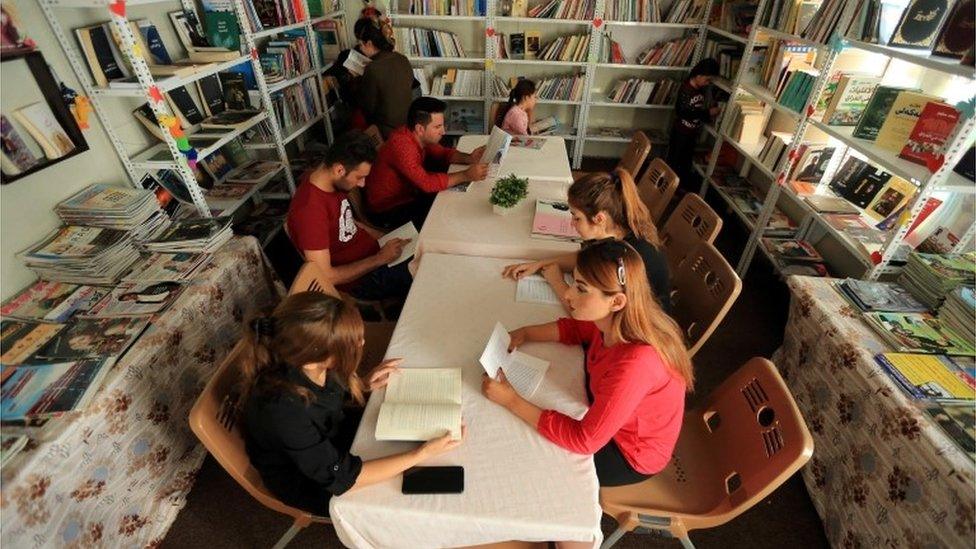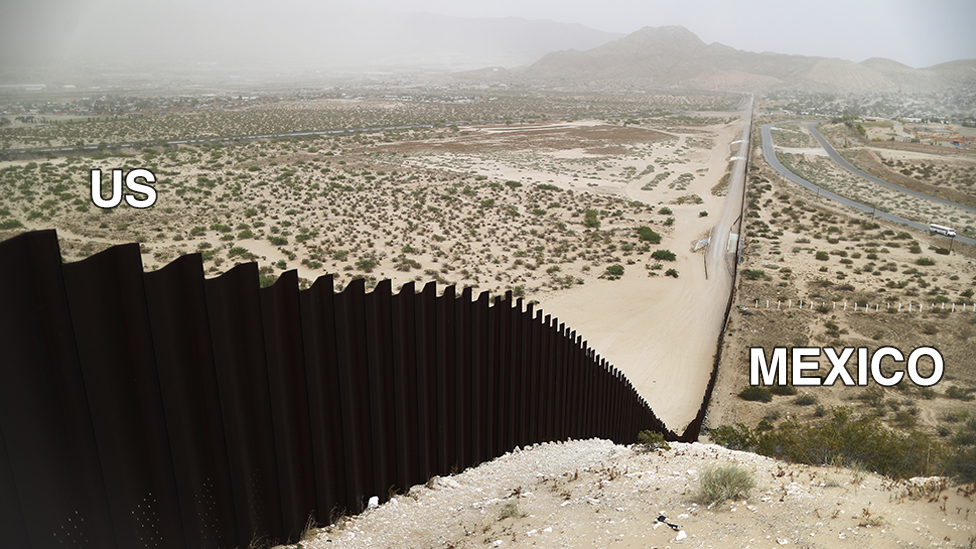US slashes refugee limit to all-time low of 18,000
- Published

Yazidi refugees in Iraq. The US says it will prioritise refugees from persecuted religious minorities
The US government has said it will cut by almost half the number of refugees allowed into the country.
The US state department says 18,000 people will be accepted under the government's refugee programme over the next 12 months - a record low.
Places will be reserved for Iraqis who helped the US military, as well as members of persecuted religious minorities, it said.
Human rights groups have criticised the move.
And Samantha Power, a former US ambassador to the UN, described it as "an abomination".
Allow X content?
This article contains content provided by X. We ask for your permission before anything is loaded, as they may be using cookies and other technologies. You may want to read X’s cookie policy, external and privacy policy, external before accepting. To view this content choose ‘accept and continue’.
President Donald Trump has also signed an executive order, external allowing state and local governments to opt out of resettling refugees in their communities.
The order would ensure "that refugees are resettled in communities that are eager and equipped to support their successful integration into American society and the labour force," he said.
Mr Trump has made reducing immigration a key aim of his administration.
In 2017 he set the limit for refugees under the US Refugee Admissions Program (USRAP) at 50,000, cutting it the next year to 45,000 and to 30,000 for this year.
The previous lowest admissions figure was in 2002, after the 9/11 attacks, when about 27,000 refugees were allowed into the US.
In a statement, officials said the numbers of asylum seekers crossing the southern border from Mexico had posed "an extraordinary burden" on the authorities.
"The current burdens on the US immigration system must be alleviated before it is again possible to resettle large number of refugees," the state department said.
The Africans risking death in the jungle trying to reach the US
As well as Iraqis who have worked with the US military, 5,000 places will be reserved for persecuted religious minorities and 1,500 for asylum seekers from Guatemala, Honduras and El Salvador - the so-called Northern Triangle countries where many migrants arriving at the southern border come from.
Humanitarian organisations were quick to criticise the announcement.
"This is a very sad day for America," said David Miliband, head of the International Rescue Committee non-profit group.
"This decision represents further damage to America's leadership on protecting the most vulnerable people around the world. It has no basis in logic or need, damages America's interests, and tarnishes her values."
Omar Jadwat, director of the Immigrants' Rights Project at the American Civil Liberties Union, said the government's "eagerness to unilaterally abandon our national commitment to protect people who are seeking safety from persecution, torture, and genocide is sickening".
Meanwhile Mark Hetfield, head of Jewish non-profit refugee assistance organisation HIAS, said Mr Trump's executive order was an attempt to "allow governors and mayors to imitate his own refugee ban, state by state and town by town."
But he said Mr Trump would be unable to prevent refugees moving once they had been resettled.
The US Refugee Admissions Program was set up in 1980 when Congress passed the Refugee Act.
- Published31 October 2020
